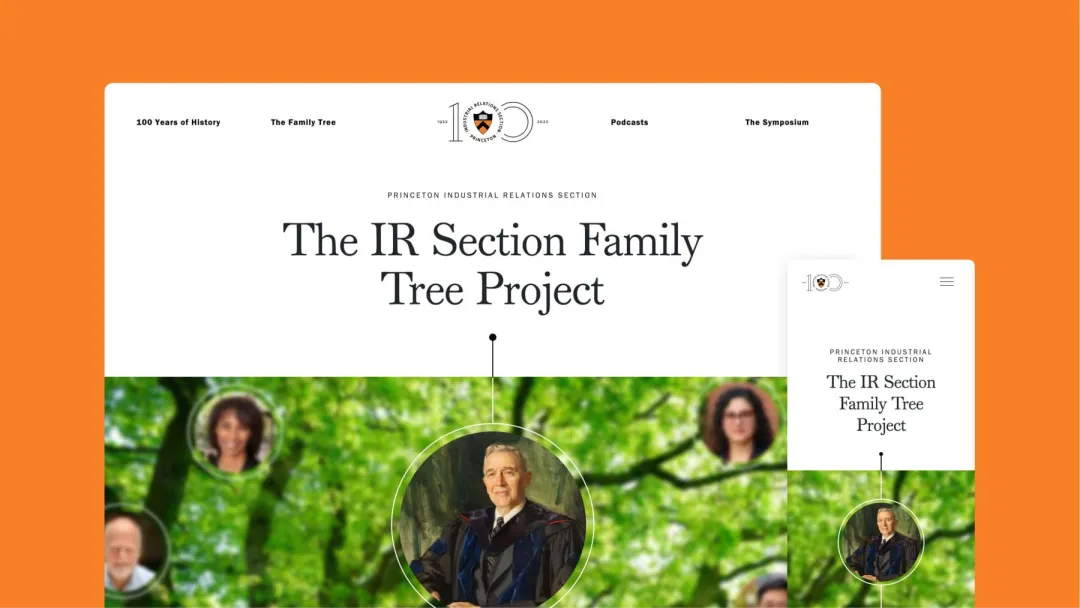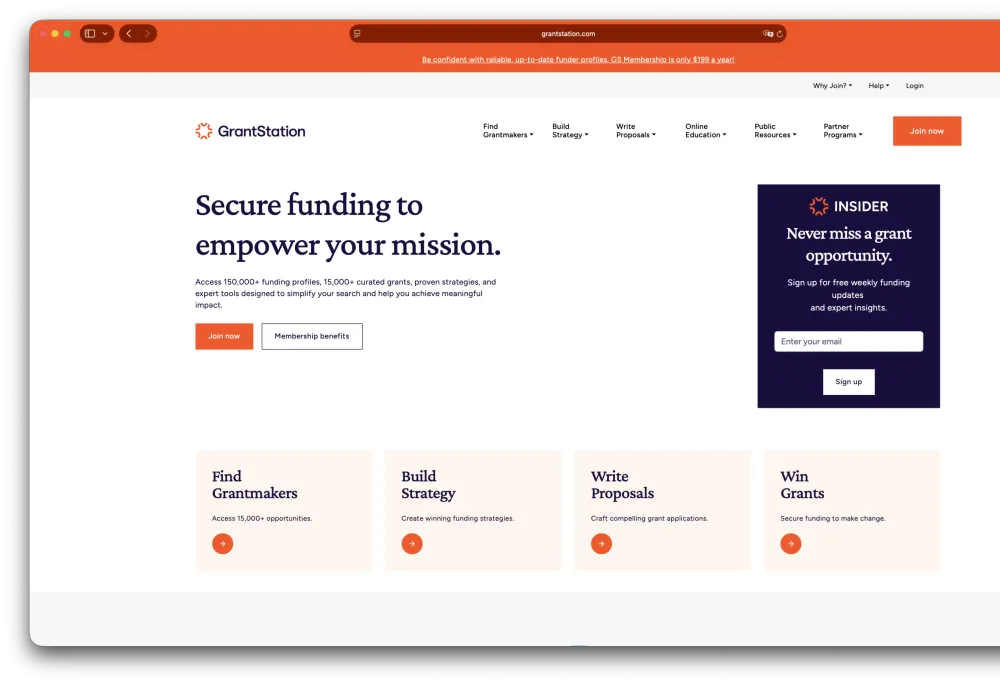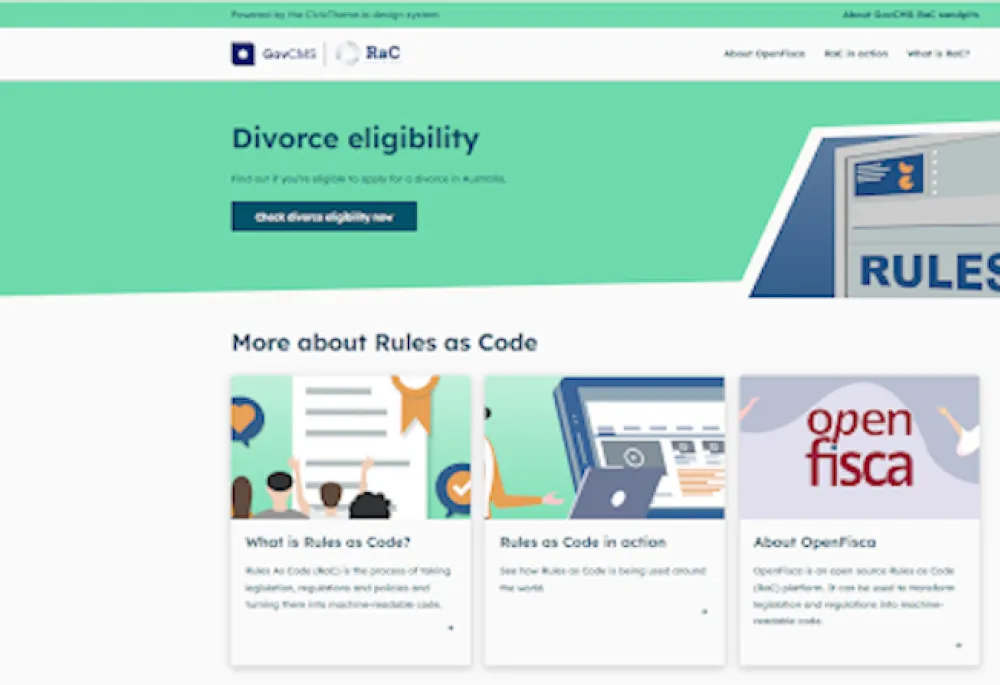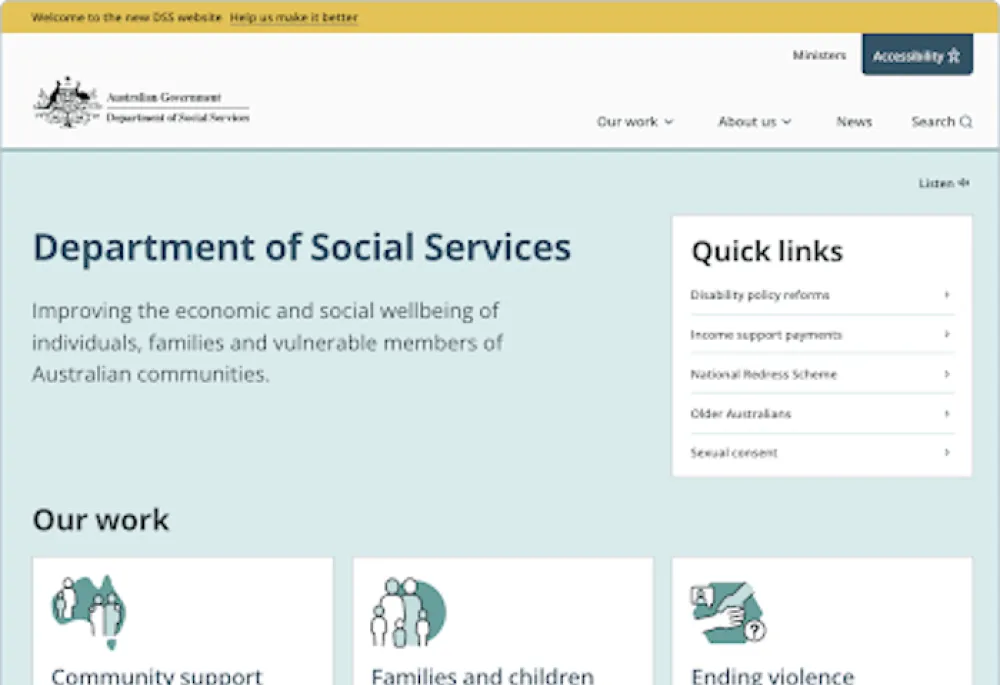Sector(s)
Drupal serves as the platform for Princeton University’s Industrial Relations Section (IRS) microsite, created to commemorate the Section’s 100th anniversary and promote the centennial symposium event. The IRS is a prestigious research center founded in 1922 that has made significant contributions to labor market policy discussions. Over the course of its history, it has made major contributions to policy discussions ranging from minimum wage and inequality to immigration and technological change. In its century of existence, the IRS has trained more than 175 economists since its founding, including numerous leading policymakers and three Nobel laureates.
For the microsite, Drupal’s flexibility and scalability are crucial to delivering key features, including an interactive timeline, a family tree mapping faculty-student relationships, and a podcast showcase. The family tree required careful design to ensure both accessibility and a way for staff to keep it updated. The timeline’s design incorporates visual elements to optimize readability. Drupal’s flexible content management capabilities allowed for efficient project delivery.
Thanks to Drupal, Evolving Web was able to create an engaging, accessible, and functional website that celebrates the IRS’s centennial and continues to provide evergreen content for visitors. This reflects Drupal’s ability to manage complex content while supporting evolving needs.
Goals
The objective of this project was to create a microsite celebrating the IRS's 100th anniversary and historical achievements. The site was designed to serve as a welcoming, engaging, informative and inspiring hub and promotional vehicle for the section's centennial symposium, featuring a relationship map between faculty mentors and their students.
The IRS specifically needed an engaging and customizable timeline highlighting the IRS's historical impact on industrial relations and labor economies in the United States, an interactive "family tree" mapping relationships between scholars and graduate advisors from the Section's founding to the present, a landing page for an IRS podcast series, and a space to promote and share information about the upcoming symposium.
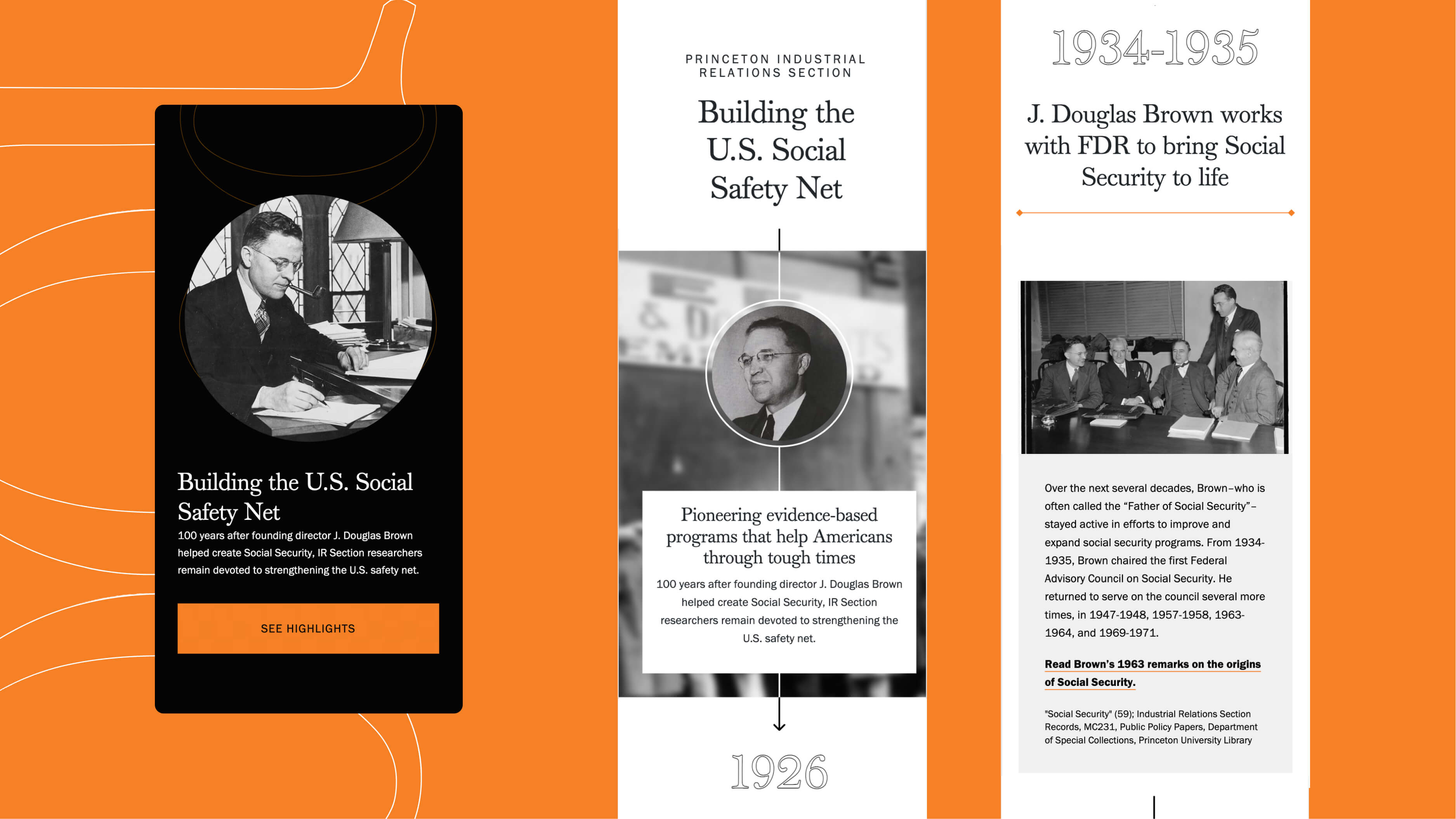
Challenges
Timeline was a major challenge for this project. With less than four months from the start of the project to the microsite’s launch, major steps like designing the sitemap and wireframes had to be completed with quick turnaround.
Of the requested functionalities, the most challenging design-wise was the family tree section. This had to be designed in a way that alumni could submit their information to the section for the webmaster to upload to the site, wherein each family tree member's record needed to link to both "parent" records (PhD advisors) and "children" records (advisees). This family tree also had to be searchable by individuals’ names and filterable by areas of research.
In addition, the back-end data structure had to allow for future changes to the front end data visualization. Users had to have a way to submit entries to the family tree via a webform to facilitate crowdsourcing of the content. As accessibility was of utmost importance to the client, this content had to be designed in a way that was accessible across digital devices.
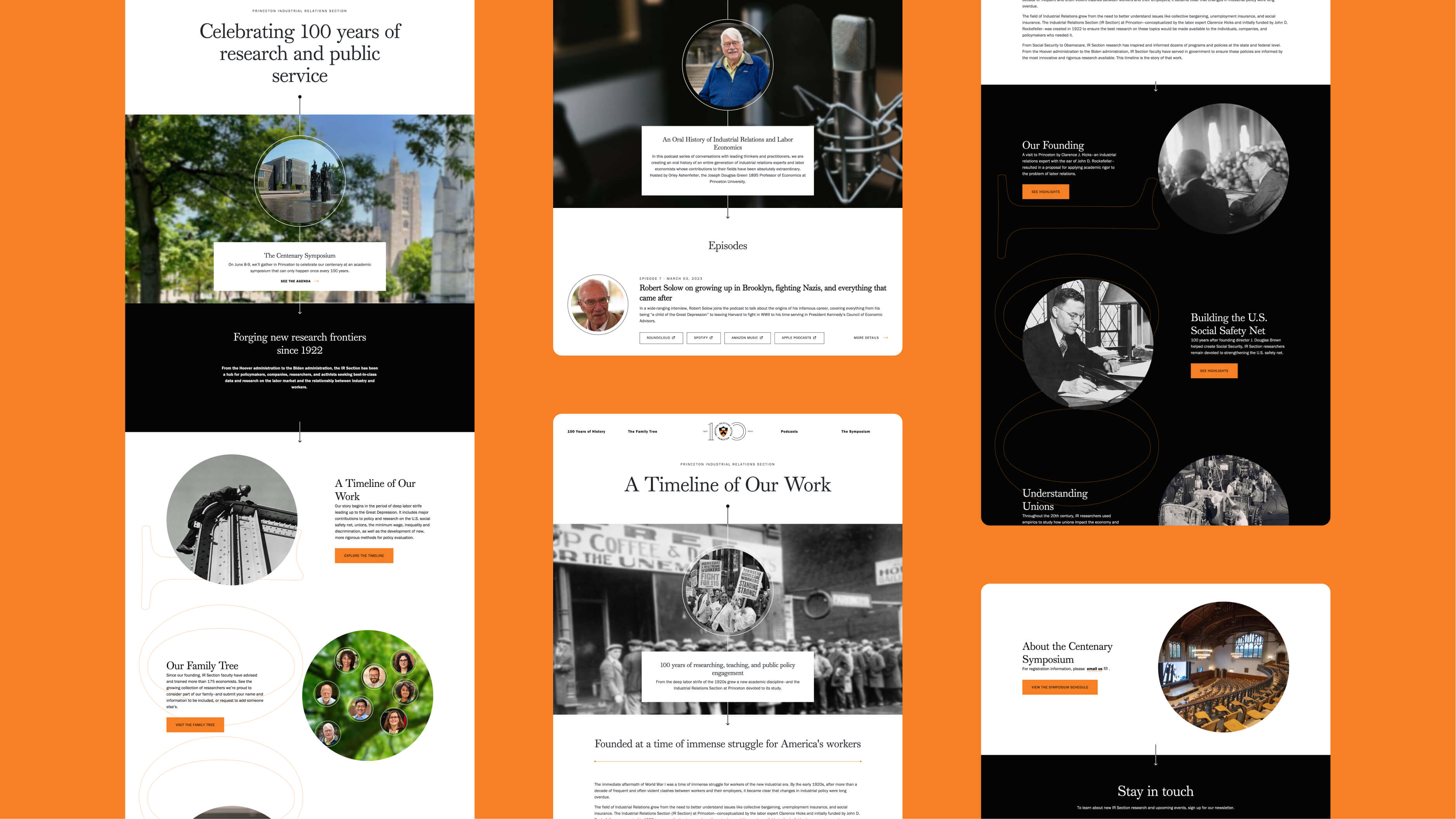
Solutions
Evolving Web began by designing a simple sitemap with four sections dedicated to the main requirements of the site: timeline, family tree, podcast, and symposium. From there we progressed to wireframing and visual design, focusing on the key elements of the family tree and the timeline pages.
Design elements included:
- Using the 100th anniversary logo for the IRS as a central design element.
- The strategic use of shapes, such as arrows in a circular pattern, to evoke connection and the passage of time to echo the zeroes in the 100th anniversary logo.
- Use of white space throughout most of the site to make typography easier to read.
- Black background for the timeline page in order to better showcase the grayscale images in this section and lend an air of sophistication and history.
- Blurred background images to add texture.
- AI sharpening to render the IRS’ superb collection of archival images in the highest possible quality.
There were no particularly challenging requirements. Evolving Web developed a webform that users submit for review and approval by IRS staff for entry into the family tree. This was the most noteworthy feature that required a contributed module; otherwise, most of the modules used came from Drupal Core. Many of the components we created, such as the arrows and circle designs, were a theme throughout the site.
Elements that required some outside-the-box design included the search form for the family tree section. For styling, Tailwind was used instead of the more common Bootstrap, which contributed to the speed of the front-end development, a major advantage given the tight timeline of the project.
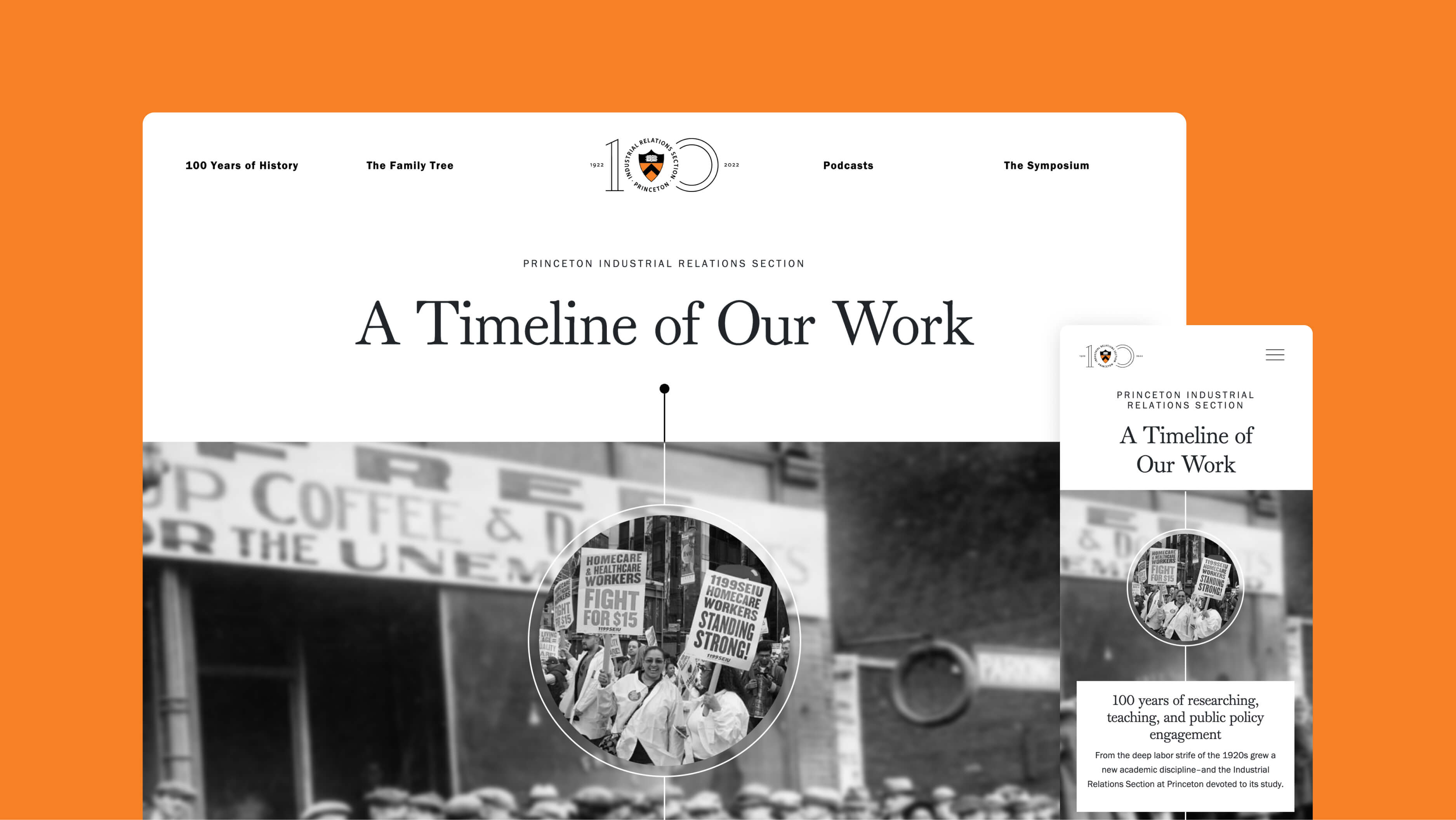
Results
The result is an attractive, highly functional Drupal website that, while centred on the IRS’ centennial celebration, will live on well beyond the anniversary year through its focus on evergreen content.
Back to topDrupal is the widely adopted solution for many Princeton University websites, offering a platform capable of managing many use cases for different faculties, departments, and groups across campus. Its open source nature ensures ongoing availability of new features or custom development as needed. Drupal’s robust content migration and synchronization framework simplifies the process of moving and updating content, making it easy to manage a dynamic site. With minimal training, site editors and contributors can become proficient in using Drupal’s workflow system to create content. The platform’s stability, security, and maintainability ensure that Princeton IRS’s microsite can reliably support its evolving needs.
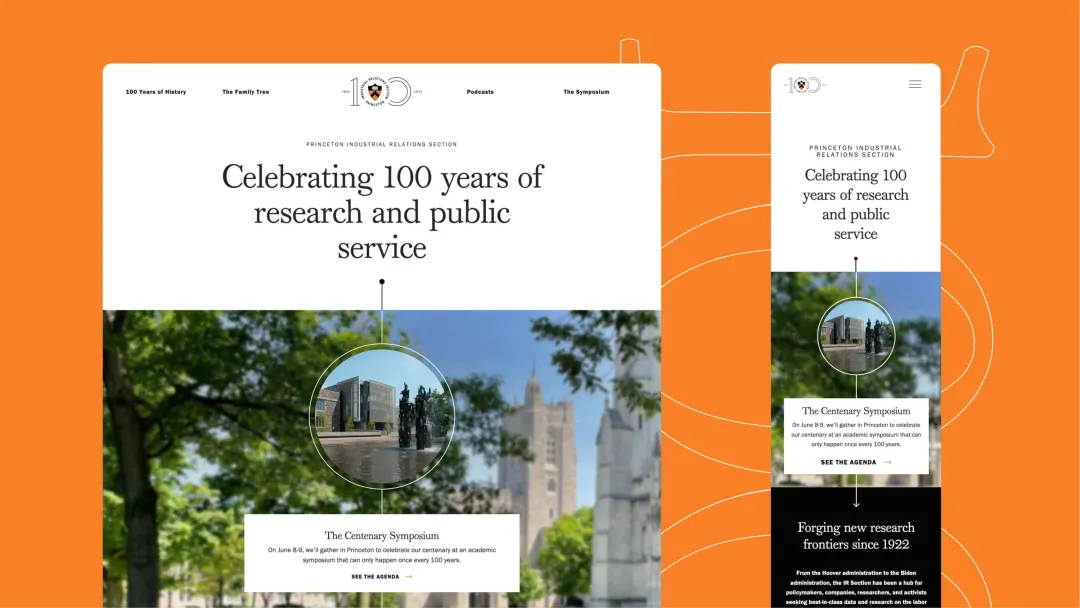
Technical Specifications
Drupal version:

